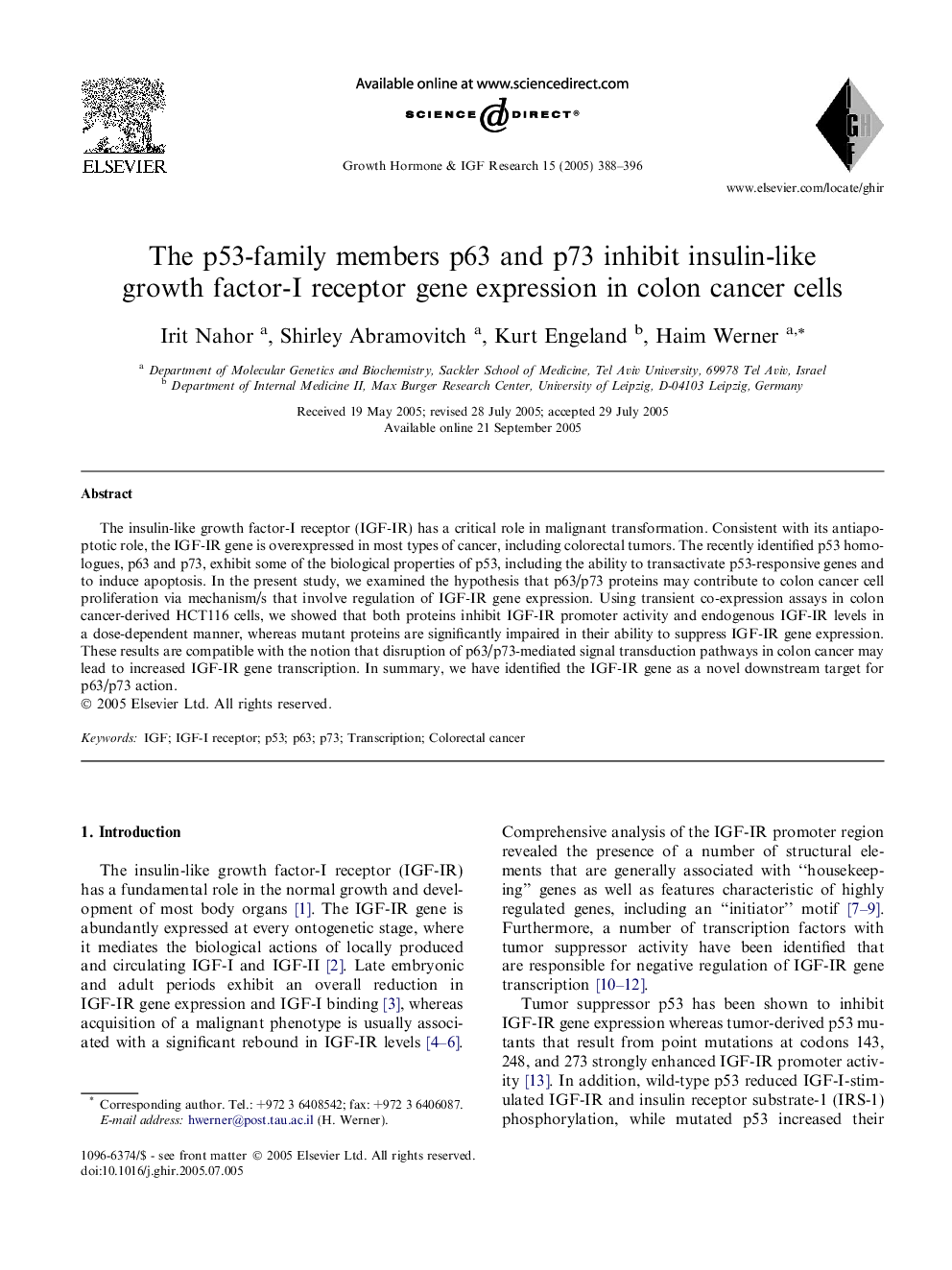| Article ID | Journal | Published Year | Pages | File Type |
|---|---|---|---|---|
| 9114763 | Growth Hormone & IGF Research | 2005 | 9 Pages |
Abstract
The insulin-like growth factor-I receptor (IGF-IR) has a critical role in malignant transformation. Consistent with its antiapoptotic role, the IGF-IR gene is overexpressed in most types of cancer, including colorectal tumors. The recently identified p53 homologues, p63 and p73, exhibit some of the biological properties of p53, including the ability to transactivate p53-responsive genes and to induce apoptosis. In the present study, we examined the hypothesis that p63/p73 proteins may contribute to colon cancer cell proliferation via mechanism/s that involve regulation of IGF-IR gene expression. Using transient co-expression assays in colon cancer-derived HCT116 cells, we showed that both proteins inhibit IGF-IR promoter activity and endogenous IGF-IR levels in a dose-dependent manner, whereas mutant proteins are significantly impaired in their ability to suppress IGF-IR gene expression. These results are compatible with the notion that disruption of p63/p73-mediated signal transduction pathways in colon cancer may lead to increased IGF-IR gene transcription. In summary, we have identified the IGF-IR gene as a novel downstream target for p63/p73 action.
Related Topics
Life Sciences
Biochemistry, Genetics and Molecular Biology
Endocrinology
Authors
Irit Nahor, Shirley Abramovitch, Kurt Engeland, Haim Werner,
